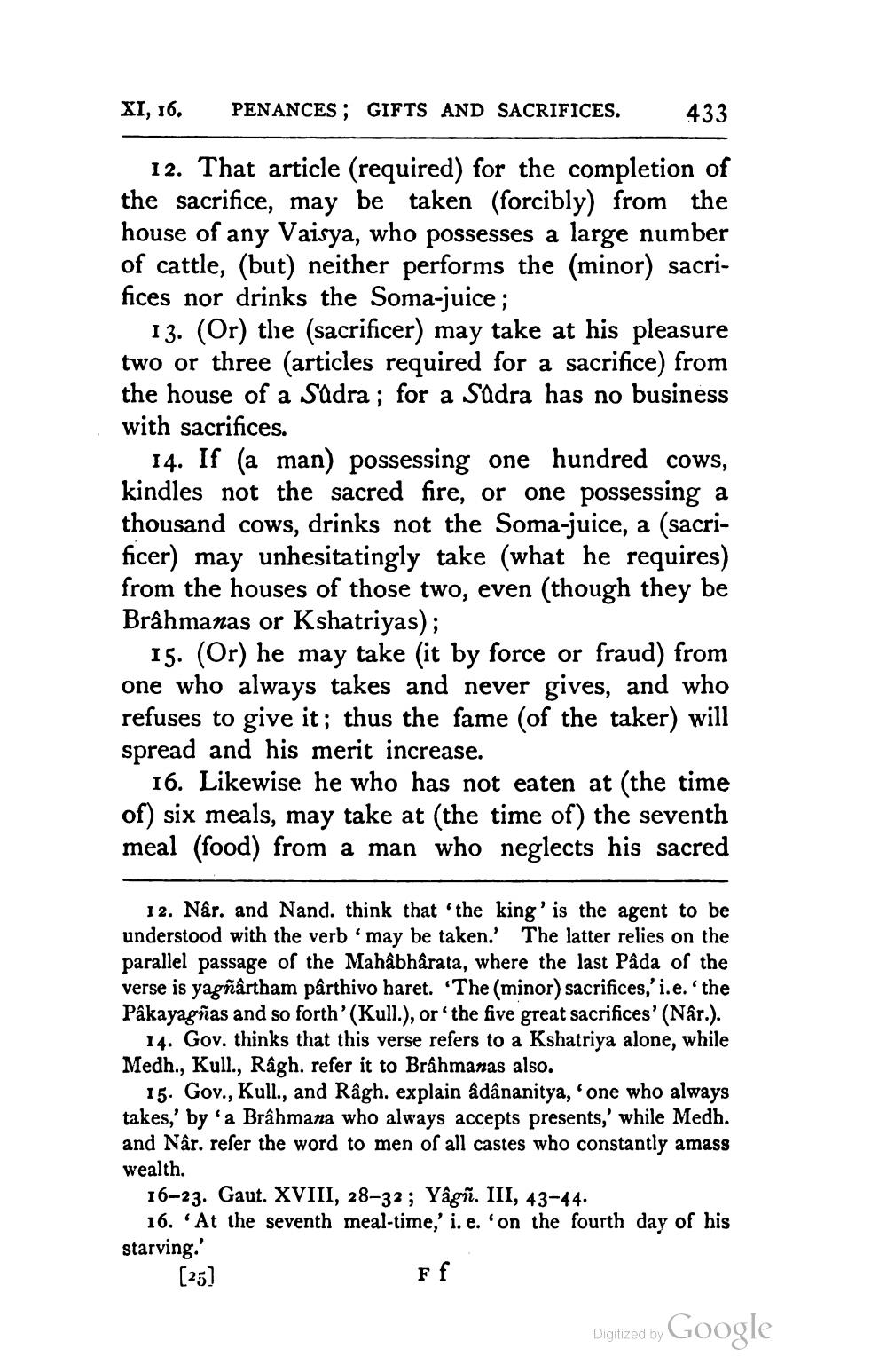________________
XI, 16.
PENANCES; GIFTS AND SACRIFICES.
433
12. That article (required) for the completion of the sacrifice, may be taken (forcibly) from the house of any Vaisya, who possesses a large number of cattle, (but) neither performs the (minor) sacrifices nor drinks the Soma-juice;
13. (Or) the (sacrificer) may take at his pleasure two or three (articles required for a sacrifice) from the house of a Sudra ; for a Sadra has no business with sacrifices.
14. If (a man) possessing one hundred cows, kindles not the sacred fire, or one possessing a thousand cows, drinks not the Soma-juice, a (sacrificer) may unhesitatingly take (what he requires) from the houses of those two, even (though they be Brahmanas or Kshatriyas);
15. (Or) he may take it by force or fraud) from one who always takes and never gives, and who refuses to give it; thus the fame (of the taker) will spread and his merit increase.
16. Likewise he who has not eaten at (the time of) six meals, may take at the time of) the seventh meal (food) from a man who neglects his sacred
12. När. and Nand. think that the king' is the agent to be understood with the verb 'may be taken. The latter relies on the parallel passage of the Mahâbhârata, where the last Pâda of the verse is yagñârtham pârthivo haret. "The (minor) sacrifices,' i.e. the Pakayagñas and so forth'(Kull.), or the five great sacrifices' (Nar.).
14. Gov. thinks that this verse refers to a Kshatriya alone, while Medh., Kull., Râgh. refer it to Brahmanas also.
15. Gov., Kull., and Râgh. explain adânanitya, 'one who always takes,' by 'a Brâhmana who always accepts presents,' while Medh. and Nar. refer the word to men of all castes who constantly amass wealth.
16–23. Gaut. XVIII, 28–32; Yâgñ. III, 43-44.
16. 'At the seventh meal-time,' i.e. 'on the fourth day of his starving.'
[25]
Digitized by Google




